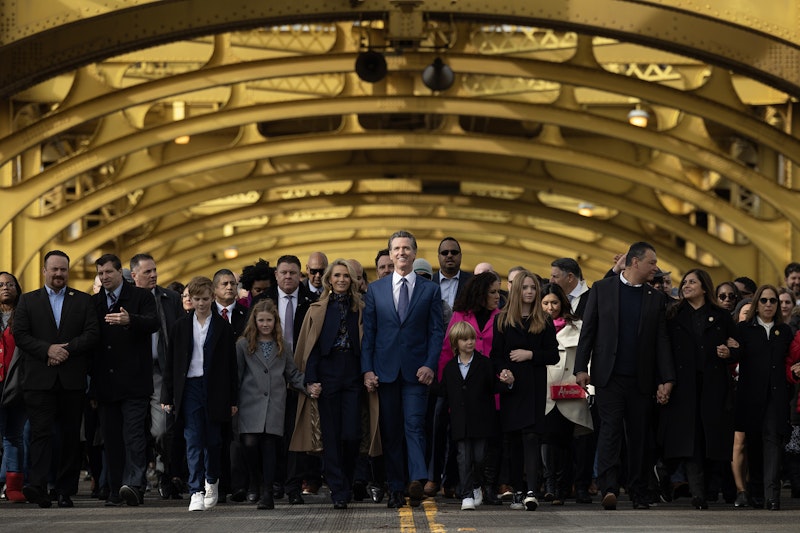Americans correctly pick “government” as the country’s #1 problem, not numerous other threats to which government pretends to be the solution. Good for the public. But they don’t respond to this ultimate problem by trying to get rid of it, merely by picking one or another political faction, even though all of those factions tend to focus on increasing the power of that already intrusive, overweening, inept yet sociopathic crime organization called government—even if only in select areas of interest to a given faction.
The problem the public ranks second in importance, by the way, inflation, is also caused by government, which has a near-monopoly on the creation of (ever more frequently printed, thus individually ever less valuable) units of currency. Like all other functions of government, monopoly national currencies should end.
But in the meantime, one can’t help feeling some pity for the public, constantly hopping around in its allegiances between different political gangs, never finding freedom. One reason, subtler than the factions’ current touting of authoritarian solutions, is that each of those factions tends over the long haul—decades or centuries—to become less libertarian than it was when it started out, more totalitarian (whether right-leaning, left-leaning, or otherwise).
This process is obscured not only by the media and the public’s greater interest in inter-factional fighting but by the fact that each individual faction’s label and internal lexicon is likely to shift over time, making its “progress” toward totalitarianism harder to track. The term “liberalism” is lately reported to be “shedding its stigma” among Democrats, but it might be more accurate to say the term is shedding its meaning, long ago tied to markets, individualism, and civil liberties but now implying ever-growing comfort with ever-growing government.
Today’s Democratic Party is less likely to defend you from the federal bureaucracy than to hide the federalization of election procedures inside a NASA appropriations bill. They pretend to be alarmed by a sitting president having a role in a riot, then want more control of politics vested in the presidency and the federal level of government. At least the Republican Party’s fits of pique sometimes have the effect of breaking up the DC monopoly a bit, as with the Republican National Committee unilaterally withdrawing from the Commission on Presidential Debates. End the pretense of unity, please.
And the liberal drift into authoritarianism isn’t just a phenomenon occurring inside government itself. That would be reassuring. Instead it’s cultural. I noticed one of the most hippie-liberal (in the modern sense) women I know online urging NATO to launch its planes against Russia and “just end it.” The evolution of the mainstream left into the establishment’s ready killbots continues apace.
To make matters worse, I don’t think we have the luxury of pretending this all started yesterday or in response to Trump. Take, for example, the left’s powerful lust to confiscate guns. It’s not a response to, say, the Sandy Hook massacre.
Back in the mid-00s, for example, anti-gun sentiment within the establishment was so strong—and so unapologetically logically-incoherent—that even tough-guy survivalist TV characters such as Locke on Lost, J.J. Abrams and Damon Lindelof’s meandering hoax of a drama, would insist that the guns not be taken out of deep storage, even with literal monsters and homicidal cultists on the attack, because good guys are supposedly as likely to start shooting each other through random confusion as they are to defend against assailants.
Did Hollywood genuinely believe back then that this is how guns work, rendering people mad like unsought PCP injections or something? Why? Well, because the mandate came down from producers and studio execs, often ones with spouses who work in violence-monopolizing government, that guns are bad, story logic and external reality be damned, that’s why. This mindless morass is liberalism now, and as it’s extended (intersectionally) to every nook and cranny of civilization, so does every aspect of society logically unravel like Lost.
As they sell us on the idea that chaos is close at hand if freedom increases, every aspect of political thought that began as freedom ends as a threat or a mandate. The UK bans plastic forks and plates. New York’s Gov. Hochul is glimpsed on TV cooking with her gas stove, gleefully supporting the Buffalo Bills, even as she and her party call for the legal abolition of gas stoves. The Twitter-using elite chime in with bizarre, brazen revisionist-history claims that true gourmets never favored gas anyway—and, for the logic-annihilating coup de grace, make simultaneous claims that only snobby foodies like gas. Being pro-gas is both unsophisticated and pretentious, apparently. Whatever helps shore up the government’s latest plans.
New York City’s Mayor Eric Adams, displaying a bit of his unpredictable residual Republican side, opposes his fellow Dems and says he opposes the gas stove ban, but Adams is hardly a tribune of across-the-board freedom and is at the same time mulling a time-consuming lunatic scheme to put metal detectors in every subway entrance, for no better reason than that some journalist suggested it at a press conference.
While these self-appointed aristocrats tell us how to live as if fine-tuning everyone’s standards of moral and culinary excellence, we’re invited to forget all the ongoing routine corruption in which politicians are eager participants. Did anyone even notice Hochul’s lieutenant governor, Brian Benjamin, resigning last year after his arrest for taking bribes in the form of campaign donations? Some idiots will see that scandal as a good reason to get Andrew Cuomo back as governor, as if one of the dozen forms of rotating evil on offer is ever the right one. Gosh, maybe he’d crack down on Wall Street misbehavior! It takes a strong, firm hand to fix things.
—Todd Seavey is the author of Libertarianism for Beginners and is on Twitter at @ToddSeavey

